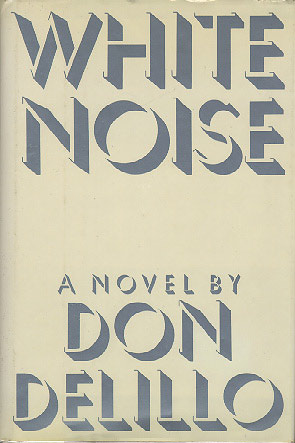
White Noise
My immediate analysis of White Noise is that it's a bit of a Magic Eye painting. Any individual patch of prose is fairly unpleasant and incoherent; unfocusing (or focusing, depending on your philosophical stance, I suppose) your eyesight and focusing on the gestalt reveals something, even if that something is only reflexively revelatory rather than having beauty or novelty in its own right — not unlike the most photographed barn in the world, which makes you think "hmm, am I deriding this book for it accomplishing exactly what DeLillo wanted it to accomplish", which makes you re-evaluate the book, and so on and so forth. It's an infinite fractal of the tenuous (and accelerated, as DeLillo would have us believe, over the past forty years) battle between reality and perception.
It's also, unfortunately, not a particularly enjoyable book. I mean that in a literal sense: I felt like I was being lectured at, and being lectured at by a professor who couldn't stick to a couple through-lines but insisted on a barrage of metaphors and aside that were all meant to convey the same thing.
I think the common riposte to most complaints about the prose and writing is "duh, that's the point." Which feels like, again, a bit of a self-reflective cop-out: it's easy and cheap to say that the dialogue is shallow because it reflects the shallowness of a decadent consumerist zeitgeist.
The book had a couple moments of beauty (I thought the climactic scene in Germantown, from Glandey's repeated refrain of his battle plan to the absurdist encounter with the atheist nuns, was the strongest passage of books; the metaphor of a toxic event making the sunsets prettier was just the right level of heavy-handed) but I just straight up didn't have a good time reading it, and suspect that a lot of its pioneering aspects in 1985 have since been co-opted by more interesting and more impressive postmodern works. I don't regret reading it — I finally get what DeLillo is about! — but I felt like it was more of a lecture than a work of art.
© 2023 Justin Duke • I hope you're wearing your favorite sweater.